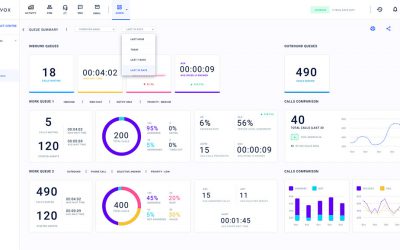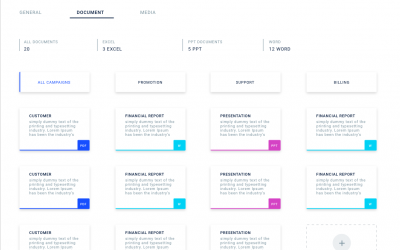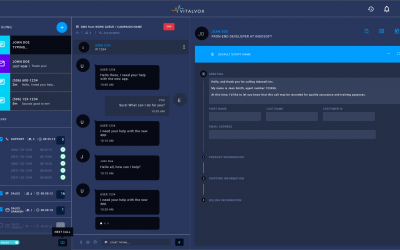Building stronger teams in contact centers starts with effective communication, the foundation of any successful team. In a fast-paced environment, clear, concise, and positive interactions are crucial as they can significantly impact customer relationships. Strong communication not only enhances team performance but also fosters cohesion and creates a positive work atmosphere. In this post, we will explore how mastering the art of communication plays a vital role in building stronger teams within contact centers.
The Role of Communication in Contact Centers
Communication in contact centers goes beyond just relaying information. It’s about creating an environment where every team member feels heard, valued, and understood. This foundation not only improves individual performance but also strengthens the entire team’s dynamic. When team members communicate effectively, they are better equipped to handle the daily challenges of their roles, whether it’s solving customer issues or collaborating on complex tasks.
Moreover, clear communication minimizes misunderstandings, reduces stress, and increases efficiency. Managers can deliver instructions more clearly, agents can share feedback openly, and overall, the entire contact center functions more smoothly. In short, the art of communication is essential for team cohesion and operational success.
Enhancing Team Collaboration Through Communication
Strong communication skills are vital for collaboration, which is essential in high-pressure environments like contact centers. Open channels of communication encourage agents to share insights, ask for help when needed, and provide constructive feedback. For example, regular team meetings and open-door policies enable staff to voice their concerns or suggest improvements, fostering a collaborative atmosphere.
Collaboration tools, such as instant messaging platforms and shared digital workspaces, also play a pivotal role in enhancing team communication. These tools streamline interactions, making it easier for agents to share information and coordinate tasks, ultimately boosting overall productivity. With a focus on communication, teams can work together more effectively, creating a unified front to tackle daily challenges.
Building Trust Through Transparent Communication
Trust is a critical component of any strong team, and it starts with transparent communication. In a contact center, transparency means keeping everyone informed about goals, challenges, and changes within the organization. When leaders communicate openly, it builds trust and respect among team members, making them feel more engaged and committed to their work.
Transparent communication also involves actively listening to team members. By encouraging feedback and responding thoughtfully, managers can create a supportive environment where employees feel valued. This, in turn, leads to higher job satisfaction, lower turnover rates, and stronger team cohesion.
Training Agents in Effective Communication
Investing in communication training for agents is one of the best ways to strengthen a contact center team. Training should cover both internal communication skills—such as how to give and receive feedback—and external communication skills, including how to handle customer interactions with empathy and clarity.
Role-playing scenarios can be particularly effective in training sessions. These exercises allow agents to practice their communication skills in a controlled environment, providing valuable feedback and insights that can be applied to real-world interactions. The better an agent can communicate, the more effective they will be in resolving customer issues, contributing positively to the team dynamic.
Utilizing Technology to Improve Communication
Technology plays a significant role in enhancing communication within contact centers. Tools like AI-powered chatbots, customer relationship management (CRM) software, and analytics platforms help streamline communication by providing agents with real-time information and insights. These technologies enable agents to communicate more effectively with customers and each other, leading to quicker resolutions and improved service quality.
Moreover, communication platforms that integrate voice, video, and messaging allow teams to stay connected, regardless of whether they are working in-office or remotely. By leveraging these technologies, contact centers can maintain seamless communication, ensuring that every team member stays informed and engaged.
Creating a Positive Communication Culture
A positive communication culture doesn’t happen overnight; it requires consistent effort and commitment from leadership. Managers should lead by example, demonstrating open communication, empathy, and active listening. Recognizing and rewarding good communication practices also reinforces the desired behaviors within the team.
Encouraging a positive communication culture can transform a contact center, leading to happier employees and more satisfied customers. When agents feel supported and connected, their enthusiasm translates into better service, stronger teamwork, and ultimately, a more successful contact center operation.
Conclusion: Stronger Teams in Contact Centers
The art of communication is vital in building stronger teams in contact centers. By fostering an environment of open, transparent, and effective communication, contact centers can enhance team performance, improve customer satisfaction, and create a positive workplace culture. Investing in communication skills and technology is not just a strategy for success—it’s a necessity in today’s fast-paced, customer-centric world.
Contact Us
Ready to enhance communication within your contact center? Contact us today to learn how our solutions can help build stronger, more cohesive teams that drive better results. Let’s start a conversation!



